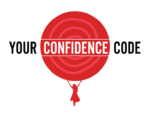Your Confidence Level:
LOW
What does that mean?
First, you are not alone. Many women, at some point in their lives, including us, find ourselves on this end of the spectrum. In general, you are more likely to feel uncertain of your opinions and of your abilities. You are probably quite risk-averse, and may be critical of what others would embrace for themselves as success.

To learn more about confidence, how to maintain it, and experience more success and resilience in your personal and professional life, take our self-paced video course, Your Confidence Code. Sign up now and get the course for the discounted price of only $149. It just might change your life.
How can you work to improve your confidence?
We believe there are a number of things you can do to start improving your confidence – here’s what we suggest:
Get focused
To help build your confidence, start small. Those of us who are confidence-challenged frequently feel overwhelmed. So start by deconstructing a larger challenge or assignment into smaller ones. Teasing out the individual parts of a challenge, and accomplishing even one-tenth of it, can give you a confidence boost. And just working towards a goal and taking action creates positive momentum.
Be grateful
New research shows that gratitude is one of the keys to happiness and an optimistic mindset. That mindset encourages confidence. And this demands a slight change in perception. Find gratitude in the tiny things. It will transform your mood.
Improve your mindset
Negative Automatic Thoughts, or NATS, are those ever-present, pestering ideas that tell you you’re not good enough. The only way to get rid of NATs is by challenging them with logic. For every one NAT – a bad thought – think of three good things you’ve done that day to focus on the positive.
If you’re struggling to come up with positive alternatives by yourself, imagine what you would tell a friend who confessed to having that same negative thought. This is putting self-compassion into action. You’ll be surprised how quickly you can trim those debilitating feelings down to size. It’s easy to do this for others, yet we let the negative thoughts roam freely in our own brains.
Face failure
That’s right – you’re terrified of asking for a pay raise, talking to a stranger, or raising your hand at a meeting. Imagine the very worst thing that could happen to you if you did. You’d be surprised that even the worst possible outcome isn’t that bad. The sky won’t fall on your head. Just knowing that can help you realize the costs of failure are nearly always worth the risk of trying something just outside your comfort zone. Actively identify one bite-sized risk each week you are willing to take.
Thank you for participating in The Confidence Code Assessment! You are now part of one of the first research studies specifically related to women and confidence, and we’re excited to work together to gather insight that will help women around the world embrace confidence in their lives.
Thank you for participating in The Confidence Code Assessment!
You are now part of one of the first research studies related to women and confidence and we’re excited to work together to gather insight that will help women around the world embrace confidence in their lives.
DISCOVER YOUR CONFIDENCE CODE
To learn more about confidence, how to maintain it, and experience more success and resilience in your personal and professional life, take our self-paced video course, Your Confidence Code.
Sign up now and get the course for the discounted price of only $149. It just might change your life.

